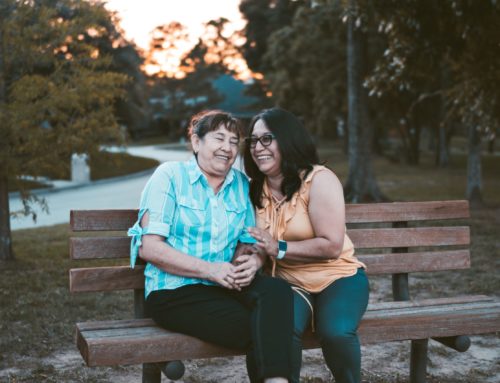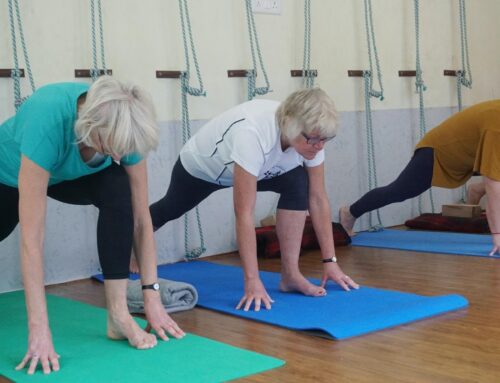Introduction
Sleep hygiene is the habits and behaviours you practice before bedtime to ensure a good night’s rest.
How much sleep do you need?
Sleep is important for health, productivity, and mental well-being. The US National Heart, Lung, and Blood Institute recommends adults get at least 7 hours each night; however, this number can change based on age and lifestyle. For example, younger adults may require more than older adults because they are still growing (and therefore developing).
Creating a pre-bedtime ritual
A pre-bedtime ritual is a calming activity you do before going to bed. It can be anything from taking a bath to reading a book or drinking herbal tea, but the activity must get you in the mood for sleep. Some people have more elaborate rituals than others, but most include some form of relaxation or meditation.
The following are examples of pre-bedtime rituals:
- Taking a shower or bath
- Reading something relaxing such as poetry or fiction
- Yoga and breathing exercises
Finding a good exercise routine
Regular exercise is good for your health and mental well-being, so it’s no surprise that it can help with sleep quality. In addition to helping you get to sleep faster and stay asleep longer, there are plenty of other ways that exercise benefits your sleeping habits.
Exercise helps promote relaxation and release tension in the body. It promotes higher endorphins (the “feel good” chemicals in our brains), making us feel more relaxed upon waking up. It can also increase the amount of deep sleep we get each night—which means fewer interruptions from light or noise during those precious hours!
Exercise also increases oxygen flow to the brain while awake; this improves mental clarity throughout the day. So if you’re struggling with feeling lethargic or unfocused during the day because sleep deprivation has zapped your energy reserves, adding in some physical activity will give you a boost when it comes to bedtime!
Avoid caffeine and alcohol before bed
Caffeine is a stimulant that can prevent you from falling asleep. It can take up to six hours to leave your system, so if you have a cup of coffee at 3:00 p.m., that’ll still affect your sleep at 9:00 p.m.—and possibly beyond!
Alcohol is a depressant and can disrupt sleep patterns by reducing rapid eye movement (REM) cycles (the last stage of sleep). In addition, one alcoholic beverage can take up to three hours to leave your system —so if you have that one drink around 6:00 p.m., don’t expect it not to affect your sleep between 8:00 p.m.-9:00 p.m!
Finally, alcohol can dehydrate your body, which may lead you to wake up in the middle of the night feeling thirsty and can cause you to have trouble falling back asleep.
Avoid electronic device use a couple of hours before bedtime
Devices such as computers, phones, and tablets can emit blue light that can trick our brains into thinking it is daytime and prevent our body from releasing a sleep hormone called Melatonin. Our bodies typically release melatonin a couple of hours before bedtime, which helps us wind down at the end of the day to prepare for sleep. So if you want to be able to get to sleep quickly, avoid using your electronic devices two hours before bedtime, if this is not possible adjust your screen settings to night mode.
Create a relaxing environment
A few simple environmental adjustments can make it easier to go to sleep.
Create a dark room:
Light pollution and artificial lights can disrupt our circadian rhythms and interfere with sleep quality. Creating a dark room may take time to adjust to, but once you do, there will be no turning back!
Create a quiet space: If you live with other people or if there are noises outside your window during the night (like traffic), this may be harder than it sounds. In these cases, earplugs may help drown out noise so you can fall asleep more quickly. You could also try noise canceling earphones/headphones—they don’t block out all sound, but they help by reducing ambient noises, so your brain doesn’t have as much input coming from its surroundings when trying to shut down for restful slumber.
Room Temperature: Your body needs cooler temperatures during sleep so keep in mind how warm or cold your bedroom gets before bedtime (especially if you live somewhere where temperatures fluctuate between seasons). Also, note that wearing socks while sleeping may help regulate body heat.
Seek professional help if you need it
If you find yourself struggling with sleep, talk to your doctor. Of course, everyone needs a different amount of sleep; some people can function on less than others. But if poor sleep is interfering with your daily life (for example, you’re unable to concentrate at work because of fatigue or if you fall asleep while driving), it may be time to seek professional help.
Sleep hygiene is key to getting good quality, restorative sleep every night
Sleep hygiene is the practice of creating a healthy environment that promotes good sleep quality. This means avoiding factors that disrupt your sleep, such as overstimulation or stress, and setting up your bedroom, so it’s dark and comfortable. Sleep hygiene isn’t a substitute for medical treatment or medication—it’s essential to talk with your physician if you’re having trouble sleeping—but it can help improve the quality of your rest.
In Summary
If you’re struggling to get a good night’s rest, it might be time to consider changes to your sleep hygiene routine. Whether that means laying off the caffeine or exercising more regularly before bed, we hope these tips will help you fall asleep faster and your quality of rest improves.



